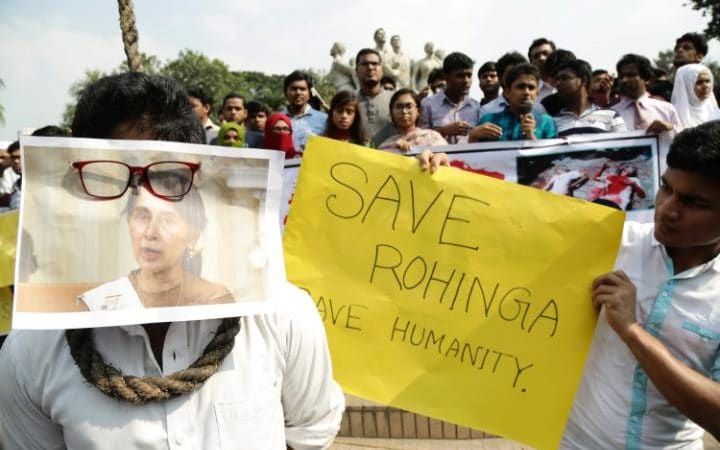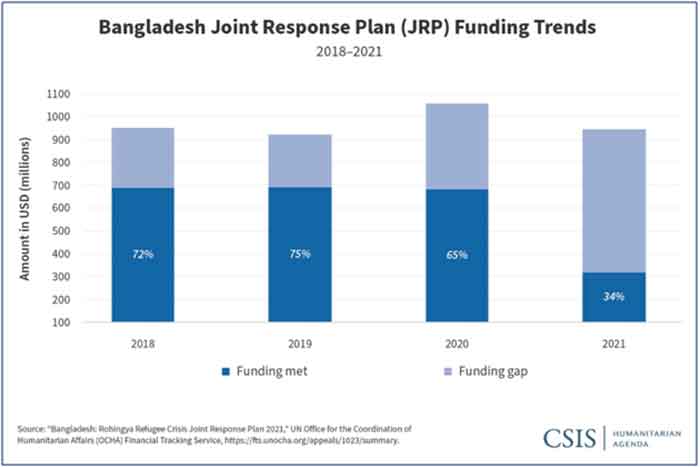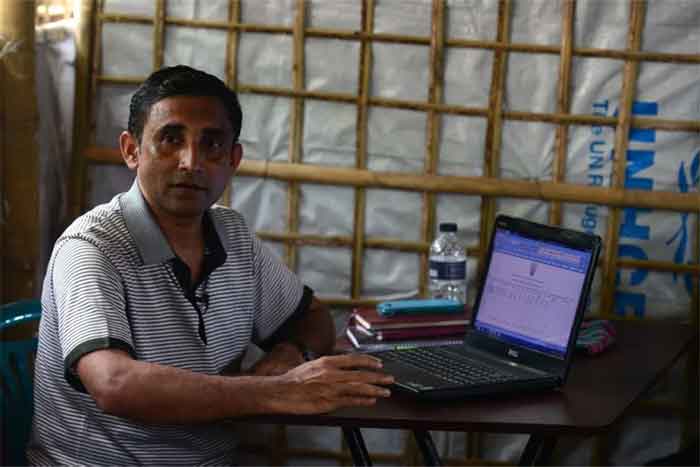
Dear Mr. Riiju,
This is a letter from an ordinary citizen of India who has been working with the refugees for over two decades. I am deeply disturbed and in a way appalled to see your arguments before the parliament of India about the Rohingyas. This has definitely set the cat among the pigeons by calling them illegal immigrants and thereby asking them to be deported from India. You have been right on target in calling them so. They are foreigners. They do not have valid visas. Some of them have been living in India for over ten years. Jammu, Tamil Nadu, Uttar Pradesh, Kerala, and Telangana are just a few states in which they stay. They usually live in slums or worse in squatters that are made of plastic sheets. Very few of them live in concrete shelters. You have claimed that over 40,000 of them are currently living in India. They eke out a living by picking up garbage from the streets and selling recyclable materials, or work in the construction industry as labourers where possible. They are among the poorest of the poor in any part of the country. Most of them have large families and hesitate to send their children to school because of the fear that they do not know language and they also hope that they may be going home soon.
The Rohingyas, as you may be well aware have lived for a very long time in the Rakhine State of Myanmar. They are a predominantly Muslim community speaking ChittagongianBengali, this is a dialect of Bengali spoken in the areas of Chittagong. While there is no clear evidence of their actual place of origin they have lived in Myanmar atleast for over a hundred years. Since they live in isolation in a Buddhist state they have been targeted for being different. This was a result of the growing spirit of nationalism a few decades ago. Their settlements would be attacked, they would be deprived of education and livelihood opportunities. Fearing the annihilation they fled to Bangladesh. Some have tried to reach Indonesia, Malaysia, Thailand, and many other East Asian countries. They have even managed to reach Australia. A small number of them have been trickling into India in search of safety and eventually end up in squalid conditions. Many of them resort to ragpicking and other low paying jobs. They live in huts, tents or squatters. In the rarest of cases they live in storm shelters. These shelters were used for cattle before their arrival.
Surrounded by poverty and hounded by fear they live in desperation most of the time. This gives room for the Indian government to think that they can be easy cannon fodder for the Islamic militants such as the ISIS, Al Qaida and many other radical organisations. They are perceived to be vulnerable targets who could get money and join any of these radical outfits. That is a valid assumption on the surface. But, with all the intelligence machinery at its disposal it is a shame to think that these hapless people would become militants for want of food.
This reminds us of the early 90’s situation in Sri Lanka. There were several militant movements and LTTE emerged as the most powerful and brutal organisation. They fearlessly hunted down even the Former Prime Minister of India. They were running their operations all over the world. Even at its peak the Sri Lankan refugees living in the camps were not part of LTTE. Ideologically a few of them connected with the LTTE, with the strong security system that carefully watched over all the movement of the refugees, the camps were literally sanitized from the militancy.
At its highest point, over 1,20,000 refugees were housed in over 125 camps all over Tamil Nadu and a few in erstwhile Andhra Pradesh. Currently there are over 64,000 refugees who live in 107 camps in Tamil Nadu. They have nothing to do with militancy and more over when the camp refugees return they are free from inquiries from the intelligence agencies in Sri Lanka.
India does not produce refugees, but welcomes refugees despite the lack of law to govern the refugees. It not a signatory to the Convention concerning Refugees (1951). Yet it has remained a model for the treatment of refugees. The country has provided the Sri Lankan refugees with the access to education, employment, health and almost all the welfare measures available to the poor of this country. It has allowed the Tibetan refugees to run a government in exile. At the same time it turns a blind eye to the selective refugees.
The situation in the Rakhine state is evidentially woeful. Over 4,00,000 Rohingyas have reached Bangladesh. Reportages from the border speak of the horrific stories that rattle the gut. It is now time for India to show some leadership with care and concern for the most deserving population. They have been the most unwanted people on the planet and with no where to go. So instead of seeing them as a security threat they need to be provided with the necessary humanitarian support. This has to be urgent and seen as an emergency rather than create panic among the poor Rohingyas living in India. And remember, India has dealt with such situation in the neighbourhood not so long ago. They can still do it being blind to the religion they belong to. Ultimately the colour of tears have no religion.
Dr Ashok Gladston Xavier (Gladston Xavier teaches social work in Loyolla College, Chennai. He is also a theatre personality. He has done extensive work on refugees as well as on survivors of Tsunami disaster.














































